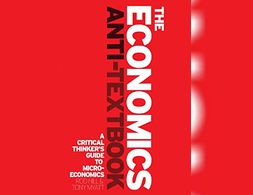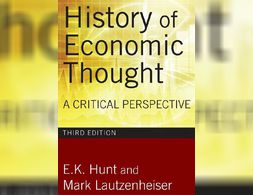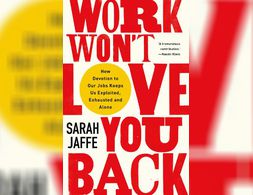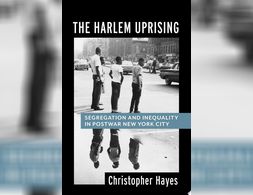✕
356 results
In this book the author develops a new approach to uncertainty in economics, which calls for a fundamental change in the methodology of economics. It provides a comprehensive overview and critical appraisal of the economic theory of uncertainty and shows that uncertainty was originally conceptualized both as an epistemic and an ontological problem.
The Learning Economy and the Economics of Hope' brings together the most important contributions by an expert on policies, management and economics of innovation and knowledge. It offers original insights in processes of innovation and learning and it draws implications for economic theory and public policy. It introduces the reader to important concepts such as innovation systems and the learning economy.
This book sets out to encourage a debate about the role that economic theory and philosophy of economics can play. A good part of economics consists of theoretical developments which describe completely imaginary worlds and have no connections to actual market economies
That’s why it is time, says renegade economist Kate Raworth, to revise our economic thinking for the 21st century. In Doughnut Economics, she sets out seven key ways to fundamentally reframe our understanding of what economics is and does.
Since the beginning of the twenty-first century, there has been an unprecedented move towards 'rethinking economics' due to the damages generated by the global financial crisis that burst in 2007-2008. Almost a decade after this crisis, policy is still unable to provide all citizens greater wellbeing or at least an encouraging economic future.
Winner of the Nobel Prize in Economics
Get ready to change the way you think about economics.
Get ready to change the way you think about economics.
Nobel laureate Richard H. Thaler has spent his career studying the radical notion that the central agents in the economy are humans--predictable, error-prone individuals. Misbehaving is his arresting, frequently hilarious account of the struggle to bring an academic discipline back down to earth--and change the way we think about economics, ourselves, and our world.
The world has changed dramatically in recent years and so has the field of economics, but many introductory economics textbooks have remained stuck in the past. This book provides a new beginning for the study of macroeconomics, fundamentally international in its approach and emphasizing current debates and research trends.
Mainstream textbooks present economics as an objective science free from value judgements; that settles disputes by testing hypotheses; that applies a pre-determined body of principles; and contains policy prescriptions supported by a consensus of professional opinion.
The new edition of this classroom classic retains the organizing theme of the original text, presenting the development of thought within the context of economic history.
The second edition of International Political Economy continues to be the perfect short introduction to the fundamental theories and issues of international political economy (IPE).
Ecological economics addresses one of the fundamental flaws in conventional economics--its failure to consider biophysical and social reality in its analyses and equations. Ecological Economics: Principles and Applications is an introductory-level textbook that offers a pedagogically complete examination of this dynamic new field.
In economics the dominant framework for exploring the structure of market economies is provided by the neoclassical school of thought. This text aims to show how neoclassical theory is used to model market mechanisms, both in particular markets and in the market economy as a whole.
Austerity has been at the center of political controversy following the 2008 financial crisis, invoked by politicians and academics across the political spectrum as the answer to, or cause of, our post-crash economic malaise.
Focusing on Kenya’s path-breaking mobile money project M-Pesa, this book examines and critiques the narratives and institutions of digital financial inclusion as a development strategy for gender equality, arguing for a politics of redistribution to guide future digital financial inclusion projects.
Thinking in Systems, is a concise and crucial book offering insight for problem solving on scales ranging from the personal to the global. Edited by the Sustainability Institute's Diana Wright, this essential primer brings systems thinking out of the realm of computers and equations and into the tangible world, showing readers how to develop the systems-thinking skills that thought leaders across the globe consider critical for 21st-century life.
The book criticizes neoclassical climate economics in the tradition of William Nordhaus. It explains why this kind of thinking is misleading and why neoclassical climate economics asks the wrong questions.
hether it's working for free in exchange for 'experience', enduring poor treatment in the name of being 'part of the family', or clocking serious overtime for a good cause, more and more of us are pushed to make sacrifices for the privilege of being able to do work we enjoy. Work Won't Love You Back examines how we all bought into this 'labour of love' myth: the idea that certain work is not really work, and should be done for the sake of passion rather than pay.
This book investigates the continuing resonances of Atlantic slavery in the cultures and politics of human reproduction that characterize contemporary biocapitalism.
Within the heterodox field one of the most active topics is related to the theory of economic growth and distribution This is a textbook for advance undergraduate and graduate students Throughout its 18 chapters Classical Neoclassical and post Keynesian models are developed Each chapter contains study problems and suggested readings …
Christopher Hayes examines the causes and consequences of the uprisings, from the city’s history of racial segregation in education, housing, and employment to the ways in which the police both neglected and exploited Black neighborhoods.
Gender Development and Globalization is the leading primer on global feminist economics and development. Gender is a development issue because social considerations are not easily incorporated into institutions such as policies, regulations, markets and organizations. This process is often referred to as the mainstreaming of gender in development institutions.
The Price of Slavery analyzes Marx's critique of capitalist slavery and its implications for the Caribbean thought of Toussaint Louverture, Henry Christophe, C. L. R. James, Aimé Césaire, Jacques Stephen Alexis, and Suzanne Césaire. Nick Nesbitt assesses the limitations of the literature on capitalism and slavery since Eric Williams in light of Marx's key concept of the social forms of labor, wealth, and value.
In this lecture, Sanjay Reddy reviews the work of János Kornai, especially his critique of the socialist system, which is rooted in his understanding of the eminently political character of socialism.
This book provides a comprehensive description of this intriguing new area of feminist economics. It includes discussion of what constitutes feminist economics and how feminist economics is different from other approaches
Noneconomists often think that economists' approach to race is almost exclusively one of laissez-faire. Racism, Liberalism, and Economics argues that economists' ideas are more complicated.
Economics is extremely sick. It is so locked in its past that nearly all of its introductory textbooks are modelled on one that appeared in 1948. The discipline cannot continue in its autistic state much longer.
This brilliantly concise book is a classic introduction to Marx’s key work, Capital. In print now for over a quarter of a century, and previously translated into many languages, the new edition has been fully revised and updated, making it an ideal modern introduction to one of the most important texts in political economy.
This lecture offers a general and introductory overview of the theory of racial capitalism, focusing on the origins of racial capitalism and some of the debates it has generated.
This essay focuses on the sources of government revenue within the Middle East and North African (MENA) region and proposes the implementation of a regional tax reset through increased taxation and tax reforms, deregulation in the private sector and economic diversification to reduce macroeconomic volatilities caused by the hydrocarbon industry.
Environmental catastrophe looms large over politics: from the young person’s climate march to Alexandria Ocasio-Cortez’s Green New Deal, increasing amounts of political space are devoted to the issue. Central to this debate is the question of whether economic growth inevitably leads to environmental issues such as depleted finite resources and increased waste, disruption of natural cycles and ecosystems, and of course climate change. Growth is the focal point of the de-growth and zero-growth movements who charge that despite efficiency gains, increased GDP always results in increased use of energy and emissions. On the other side of the debate, advocates of continued growth (largely mainstream economists) believe that technological progress and policies can ‘decouple’ growth from emissions.
In this essay, the principle of capital accumulation, as well as the idea of homo economicus as the basis of the growth model, are located and analyzed from a feminist perspective. The sufficiency approach is presented as an alternative to these two economic logics.
Ha Joon Chang exposes the main ideas of his book Bad Samaritans, namely that historically states have developed and industrialized by making policy interventions related to industry protection, tariffs and subsidies and not by opening their markets to free trade. Chang elaborates on the examples of Japan, the US, Singapore and Germany amongst others to show that an interventionist path to development has been the regularity and not an anomaly. In the end of the lecture, he argues that they idea of a level playing field should be replaced by a trade order that accounts for differences in power and economic capacities of different countries. The last 20 minutes are questions and answers.
We use cookies on our website. Click on Accept to help us to make Exploring Economics constantly better!
































